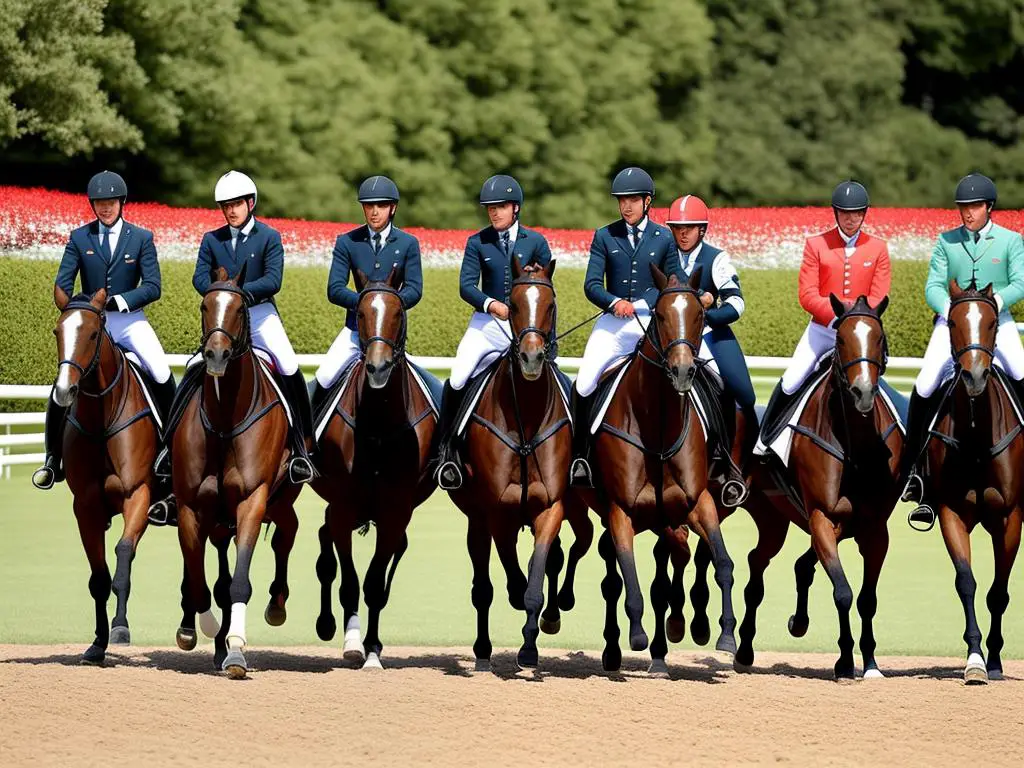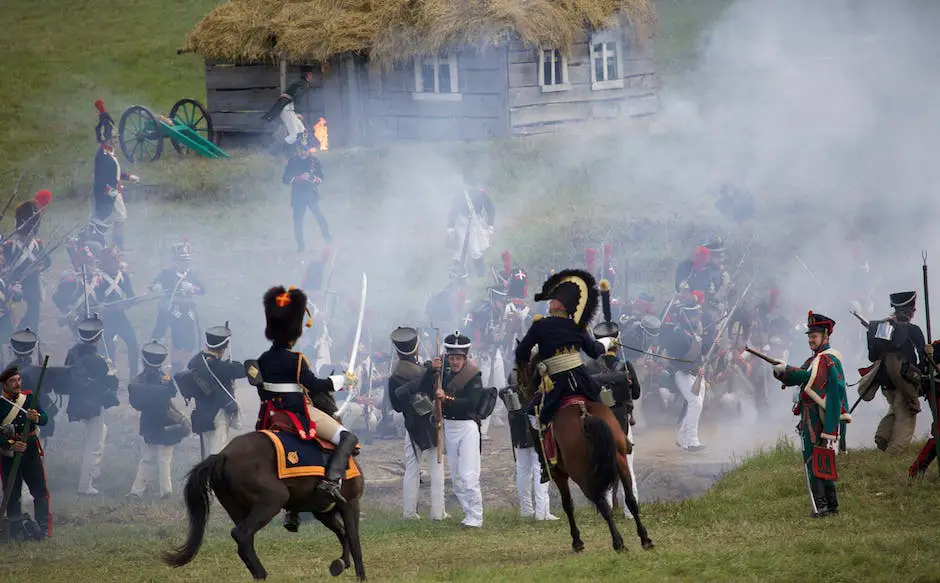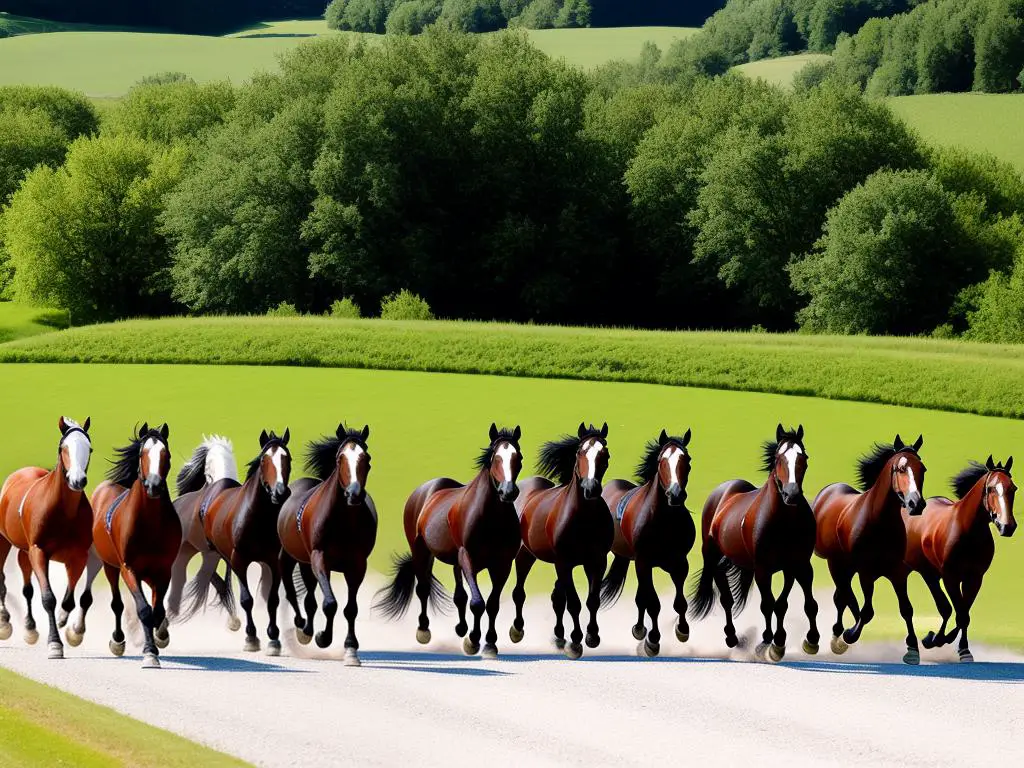When one delves into the rich tapestry of French culture, it is impossible to ignore the thread of equestrianism woven seamlessly throughout. The awe-inspiring narrative of French equestrian culture, dating back to the earliest dawn of human civilization, is marked by a profound association with horses that extends far beyond recreational activities. This culture unfolds a fascinating chronicle, where magnificent creatures and their human companions have not only shaped the course of battles and influenced socio-economic aspects, but have also played an instrumental role in fashion, arts, and even the ways people choose to spend their spare time.
Table of Contents (Horspedia)
History of French Equestrian Culture
Beginnings: A Deeply Rooted Equestrian Heritage
France’s equestrian culture dates back to the Gauls, a Celtic tribe that inhabited the region before the Romans. The Gauls were known for their exceptional horsemanship and horse breeding, setting the foundation for France’s future love and mastery of equine sports. During the Roman conquest, the Gauls’ equestrian skills were highly prized and utilized in chariot racing and warfare.
Middle Ages: Knights, War Horses, and the Rise of Chivalry
The Middle Ages were a significant period for France’s equestrian culture. The concept of chivalry was born, intertwining the skills of horsemanship, fighting, and the moral code of knights. The war horse, or “Destrier,” was an essential part of this era, bred specifically for battle and jousting. The war horse was highly prized, strong, and often as revered as the knights themselves.
Renaissance and the French Court: A New Vision of Horse Riding
The Renaissance saw a shift from the military approach to horse riding towards a more refined, sophisticated style, influenced by the Italian nobleman Federico Grisone and his book “Gli ordini di cavalcare” (The Orders of Riding). This era saw the rise of Manege riding, which laid the foundation for modern dressage. The French court was a stage for displays of equestrian prowess, with Louis XIV, the ‘Sun King’, being a famous lover of horses.
Breed Development: The Creation of the French Trotter and Thoroughbred
French equestrian history is closely connected with the development and evolution of local horse breeds, such as the French Trotter and the French Thoroughbred. The French Trotter, known for its incredible stamina and speed, is the star of harness racing in France. The French Thoroughbred, known globally for its power and elegance, is fundamental in flat racing and jumps racing. These breeds reflect the French vision of the perfect horse: powerful, agile, compliant, and able to demonstrate both speed in racing and grace in high-level dressage.
19th Century: The Golden Age of French Equestrian Sports
The 19th century can be considered the golden age of equestrian sports in France. The creation of the Société d’Encouragement pour l’Amélioration des Races de Chevaux en France in 1833 played a crucial role in promoting horse breeding and equestrian sports. Longchamp Racecourse opened in Paris in 1857, setting the stage for flat racing, and Deauville-La Touques Racecourse established in 1864, renowned for both flat and jumps racing. This era saw equestrian sports becoming a significant part of the society’s social and cultural life.
Modern Era: Equestrianism as a Symbol of National Identity
In the 20th and 21st centuries, equestrian sports continued to hold an important place in France’s national identity. France has consistently ranked highly in international equestrian competitions, particularly in show jumping, dressage, and eventing. The Cadre Noir, a prestigious riding school in Saumur, represents the essence of French classical horsemanship and is recognized as an intangible cultural heritage by UNESCO.
From the gallant Renaissance displays to the thrilling modern races, equestrian sporting events hold great significance in French society, encapsulating their deep-rooted appreciation for power, mastery, and elegance.

Contemporary French Equestrian Practices
Delving Deeper into French Equestrian Culture
This profound equestrian culture in France is not simply an attractive facet of their heritage but also an evolving spectacle on the global competitive platform. With an envious history that spans centuries, France showcases a unique amalgamation of time-honored tradition and fresh innovation in their equestrian arts. In today’s modern sporting world, France’s reputations in dressage, show jumping, and eventing are recognized and admired universally.
Popular Equestrian Sports
One of the key elements of French equestrian culture is the popularity of equestrian sports.
Show Jumping
France is highly regarded for its show jumping, an equestrian sport where horse and rider negotiate a series of obstacles within a set course. The emphasis is on speed, accuracy, and a harmonious partnership between the rider and the horse.
Dressage
Dressage, a highly disciplined form of riding, is another popular equestrian sport in France. It is often likened to ballet on horseback, requiring precise movement and impeccable coordination between horse and rider.
Eventing
Eventing, also known as horse trials, is a combination of dressage, cross-country, and show jumping. This triathlon of equestrian sports is highly competitive and requires athletic prowess from both horse and rider.
Equestrian Training in France
Training for equestrian sports in France is provided by a system of riding schools. These schools offer courses in general horsemanship, competitive riding, and horse management. Both public and private institutions provide lessons, certifications, and comprehensive training programs.
The French Equestrian Federation (FFE) is the governing body for equestrian sports in the country. They sanction and supervise competitions, promote development of equestrian skills, and foster youth participation. In addition, they are responsible for licensing athletes, judges, and other sports officials.
Notable Figures in French Equestrian Culture
France is home to numerous notable equestrian figures that continually shape the equestrian world.
Roger-Yves Bost
Known as “Bosty” in the equestrian community, he represented France in Show Jumping at numerous Olympic games and won gold in 2016. He is hailed as a national hero in the equestrian world.
Thibaut Vallette
As an eventer, Thibaut Vallette is known for his exceptional skill and precision. A Lieutenant Colonel in the French Army, Vallette’s career includes outstanding performances at major international events, including the Olympics and the World Equestrian Games.
Jessica Michel-Botton
She is a renowned French dressage rider who has represented France internationally numerous times.
France, a country known for its iconic history, is also renowned for maintaining a vibrant equestrian culture that competes strongly on the global stage. This impressive equestrian scene encompasses time-honored skills ranging from show jumping and dressage to eventing, supplemented by the national institutions and personalities who are immensely contributing to the growth and reputation of the French equestrian community.

Social and Cultural Significance of Equestrianism in France
Under the Spotlight: France’s Equestrian Heritage
Delving deeper into the roots of France’s equestrian culture, one can witness its rich and enduring history spanning multiple aspects of French life, from fashion and leisure to arts and tourism. This multifaceted influence of equestrian practices persists even today, significantly shaping contemporary French society.
French Equestrianism and Fashion
Horses have not only been companions and helpmates but also a source of inspiration for French fashion designers. The luxury brand, Hermès, for instance, founded in 1837 as a harness workshop, owes much of its prestige and identity to the equestrian world. They turned the elegance of equestrian sport into fashionable creations, from high-quality saddlery and riding apparel to accessories such as silk scarves adorned with horse prints.
Artistic Flair: Equestrian Influence on French Arts
The equestrian theme has also been significantly influential in the country’s artistic domain. Horses, as motifs in different art forms, represent strength, nobility, and freedom. Many notable French artists, including Rosa Bonheur and Théodore Géricault, have rendered fascinating horse-themed paintings, sculptures, and installations.
Equestrianism as a Leisure Pursuit
Equestrianism in France extends beyond fashion and arts to incorporate leisure activities. The French passion for horses has birthed numerous equestrian festivals, events, and clubs. The “Fête du Cheval” (Festival of the Horse) is a prominent annual event that attracts horse enthusiasts from around the country and beyond. Additionally, France has numerous equestrian clubs that offer horse riding as a sporting and leisure activity.
Equestrian Tourism: A Boost to the French Economy
Equestrian tourism is another unique aspect of French equestrian culture. France is home to scenic landscapes ideal for horse riding vacations. This has led to a boost in the country’s tourism and significantly contributes to the economy. With thousands of kilometers of marked equestrian trails across the countryside, mountain regions, and along the coast, France offers varied riding experiences that cater to all interests, from casual riders to expert equestrians.
Symbolic Significance of Horses in French Culture
The horse holds a unique status in the French cultural landscape, symbolizing freedom, power, and elegance. France has a deep-rooted tradition of breeding horses, a fact reflected in the prestigious “Haras Nationaux” (National Stud Farms) and the many races and prestigious equestrian competitions held throughout the country.
Socio-Economic Impact of French Equestrianism
The significance of equestrianism in France goes beyond the societal and cultural aspects to exert substantial economic impacts. France has a vibrant equine industry, which supports numerous jobs and contributes significantly to the economy. The sector spans broad areas, including horse farming, equine sport, equestrian tourism, and related industries such as equipment manufacturing and horse training.
In sum, equestrianism in France continues to be more than just a sport or leisure activity; it’s an essential part of the nation’s cultural tapestry, impacting diverse sectors such as art, fashion, leisure, and tourism. Moreover, it carries a rich symbolic significance and contributes to the socio-economic landscape of France.

Fascinatingly, the French culture continues to maintain an enduring connection with equestrianism. Horses are not merely revered as regal creatures of beauty and strength; they continue to be significant symbols, deeply ingrained in the French ethos. Whether admired in the sports arenas, celebrated in arts, or serving as an indulgence of leisure, the prominence of horses is indisputably unmatched in French society. Even today, they continue to hold a profound socio-economic impact and greatly influence tourism. The story of French equestrian culture goes far beyond the riding schools, popular equestrian sports, and races; it is the embrace of an enriching legacy intertwined with the heart of French civilization.